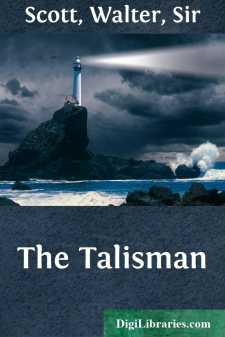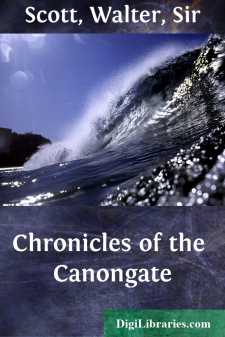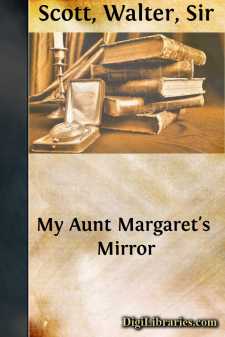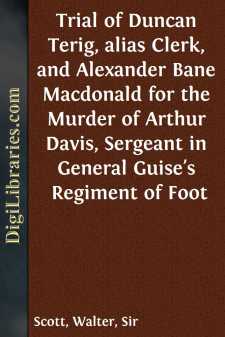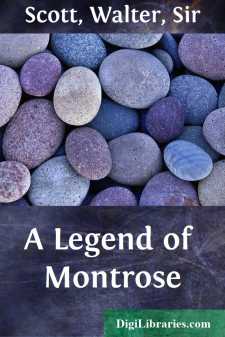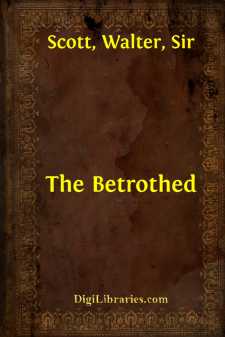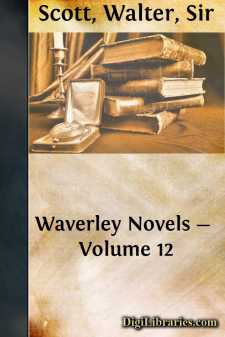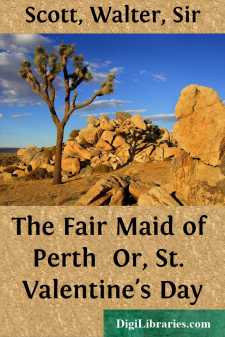Categories
- Antiques & Collectibles 13
- Architecture 36
- Art 48
- Bibles 22
- Biography & Autobiography 815
- Body, Mind & Spirit 144
- Business & Economics 28
- Children's Books 18
- Children's Fiction 14
- Computers 4
- Cooking 94
- Crafts & Hobbies 4
- Drama 346
- Education 58
- Family & Relationships 59
- Fiction 11833
- Games 19
- Gardening 17
- Health & Fitness 34
- History 1378
- House & Home 1
- Humor 147
- Juvenile Fiction 1873
- Juvenile Nonfiction 202
- Language Arts & Disciplines 89
- Law 16
- Literary Collections 686
- Literary Criticism 179
- Mathematics 13
- Medical 41
- Music 40
- Nature 179
- Non-Classifiable 1768
- Performing Arts 7
- Periodicals 1453
- Philosophy 65
- Photography 2
- Poetry 896
- Political Science 203
- Psychology 44
- Reference 154
- Religion 515
- Science 126
- Self-Help 85
- Social Science 82
- Sports & Recreation 34
- Study Aids 3
- Technology & Engineering 59
- Transportation 23
- Travel 463
- True Crime 29
Walter Scott
Sir Walter Scott (1771-1832) was a Scottish novelist, poet, historian, and biographer who is considered one of the most influential figures in Scottish literature. He is renowned for his historical novels such as "Ivanhoe," "Rob Roy," and "Waverley," which romanticized Scottish history and folklore. Scott's works played a significant role in the development of the historical novel genre and had a lasting impact on literature and cultural identity in Scotland.
Author's Books:
Sort by:
by:
Walter Scott
INTRODUCTION TO THE TALISMAN. The "Betrothed" did not greatly please one or two friends, who thought that it did not well correspond to the general title of "The Crusaders." They urged, therefore, that, without direct allusion to the manners of the Eastern tribes, and to the romantic conflicts of the period, the title of a "Tale of the Crusaders" would resemble the playbill,...
more...
by:
Walter Scott
INTRODUCTION TO CHRONICLES OF THE CANONGATE. The preceding volume of this Collection concluded the last of the pieces originally published under the NOMINIS UMBRA of The Author of Waverley; and the circumstances which rendered it impossible for the writer to continue longer in the possession of his incognito were communicated in 1827, in the Introduction to the first series of Chronicles of the...
more...
by:
Walter Scott
It has long been the ambition of the present publishers to offer to the public an ideal edition of the writings of Sir Walter Scott, the great poet and novelist of whom William Hazlitt said, 'His works are almost like a new edition of human nature.' Secure in the belief not only that his writings have achieved a permanent place in the literature of the world, but that succeeding generations...
more...
by:
Walter Scott
CHAPTER I. You are fond (said my aunt) of sketches of the society which has passed away. I wish I could describe to you Sir Philip Forester, the "chartered libertine" of Scottish good company, about the end of the last century. I never saw him indeed; but my mother's traditions were full of his wit, gallantry, and dissipation. This gay knight flourished about the end of the seventeenth and...
more...
by:
Walter Scott
INTRODUCTION. Although the giving information concerning the unfair manner in which they were dismissed from life, is popularly alleged to have been a frequent reason why departed spirits revisit the nether world, it is yet only in a play of the witty comedian, Foote, that the reader will find their appearance become the subject of formal and very ingenious pleadings. In his farce called the Orators,...
more...
by:
Walter Scott
I. INTRODUCTION TO A LEGEND OF MONTROSE. The Legend of Montrose was written chiefly with a view to place before the reader the melancholy fate of John Lord Kilpont, eldest son of William Earl of Airth and Menteith, and the singular circumstances attending the birth and history of James Stewart of Ardvoirlich, by whose hand the unfortunate nobleman fell. Our subject leads us to talk of deadly feuds, and...
more...
by:
Walter Scott
It has long been the ambition of the present publishers to offer to the public an ideal edition of the writings of Sir Walter Scott, the great poet and novelist of whom William Hazlitt said, 'His works are almost like a new edition of human nature.' Secure in the belief not only that his writings have achieved a permanent place in the literature of the world, but that succeeding generations...
more...
by:
Walter Scott
The Tales of the Crusaders was determined upon as the title of the following series of the Novels, rather by the advice of the few friends whom, death has now rendered still fewer, than by the author's own taste. Not but that he saw plainly enough the interest which might be excited by the very name of the Crusaders, but he was conscious at the same time that that interest was of a character which...
more...
by:
Walter Scott
Sir Walter Scott transmitted from Naples, in February, 1832, an Introduction for CASTLE DANGEROUS; but if he ever wrote one for a second Edition of ROBERT OF PARIS, it has not been discovered among his papers. Some notes, chiefly extracts from the books which he had been observed to consult while dictating this novel, are now appended to its pages; and in addition to what the author had given in the...
more...
by:
Walter Scott
CHAPTER I. "Behold the Tiber," the vain Roman cried,Viewing the ample Tay from Baiglie's side;But where's the Scot that would the vaunt repay,And hail the puny Tiber for the Tay? Anonymous. Among all the provinces in Scotland, if an intelligent stranger were asked to describe the most varied and the most beautiful, it is probable he would name the county of Perth. A native also of any...
more...


